Better Physical

How does physical exercise contribute to mental well-being ?
The text discusses how physical exercise contributes to mental well-being by releasing endorphins, boosting self-esteem, improving sleep quality, facilitating social interaction, and enhancing cognitive function. Regular physical activity can lead to long-term improvements in mental health, including reduced stress, anxiety, and depression, as well as better emotional stability and overall mood. Engaging in group sports or exercise classes provides opportunities for social interaction, which is essential for mental well-being, while achieving fitness goals can boost self-esteem and self-confidence. Better sleep patterns from exercise can lead to improved cognitive function and emotional regulation, while enhanced cognition may aid in the management of mental health conditions. Incorporating regular physical activity into your routine can promote mental well-being through these various mechanisms.

Can physical activity improve mental health ?
Physical activity has been found to significantly improve mental health by enhancing self-efficacy and stress self-management skills. Research shows that engaging in physical activities can lead to a sense of accomplishment, boosting an individual's confidence in their abilities, which in turn fosters better stress management and contributes to enhanced mental well-being. This relationship is particularly important for adolescents, a demographic vulnerable to mental health challenges. Future research should focus on identifying specific types of physical activities that have a greater potential to enhance these skills, guiding the development of targeted interventions aimed at improving mental health through physical activity.

Why is it a mistake to believe that more exercise automatically leads to better health ?
The belief that more exercise automatically leads to better health can be a mistake due to several reasons such as overexertion and injury risk, neglect of other aspects of health, cardiovascular strain, hormonal imbalances, and mental health impact. It is important to recognize that more is not always better and a balanced approach that incorporates appropriate amounts of exercise along with attention to nutrition, rest, and overall wellness is key to achieving optimal health outcomes.

Can regular physical activity reduce anxiety levels ?
Regular physical activity can help reduce anxiety levels by improving mood, reducing stress hormones, promoting better sleep, increasing self-esteem and confidence, and providing social support. Engaging in at least 30 minutes of moderate-intensity exercise per day can significantly reduce anxiety symptoms.

Can regular physical activity prevent age-related diseases ?
The text discusses the potential of regular physical activity to prevent age-related diseases, highlighting its numerous benefits such as improved cardiovascular health, enhanced immune function, better bone density, reduced inflammation, and improved mental health. It further elaborates on how these benefits can specifically prevent or delay the onset of diseases like cardiovascular diseases, diabetes, osteoporosis, cancer, and dementia. The conclusion emphasizes that while regular physical activity can play a significant role in preventing age-related diseases, it should be part of a comprehensive approach to health that also includes a balanced diet, adequate sleep, and stress management.

How does physical activity affect children's cognitive development ?
This article discusses the positive impacts of physical activity on children's cognitive development, including improved attention and memory, enhanced executive functioning, increased learning abilities, reduced stress and anxiety, and promoted socialization and teamwork skills. Regular exercise can enhance blood flow to the brain, strengthen neural connections in the prefrontal cortex, stimulate neurogenesis, release endorphins, and provide a healthy outlet for releasing energy and emotions. Encouraging children to engage in regular physical activity can have long-lasting positive effects on their overall well-being and success throughout life.
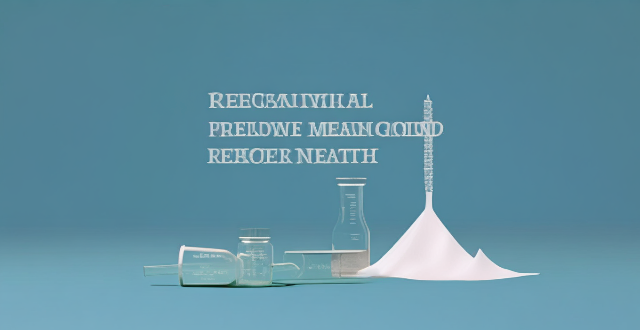
Can regular physical activity improve mental health ?
Regular physical activity can improve mental health by reducing the risk of depression and anxiety, enhancing self-esteem and cognitive function, improving sleep quality, and reducing stress. Practical recommendations for incorporating exercise into daily routines include starting small, finding enjoyable activities, setting realistic goals, making it social, incorporating strength training, staying consistent, listening to your body, and consulting with professionals.

How does music influence motivation during physical activity ?
Music has a significant impact on motivation during physical activity. Fast-paced music increases energy levels, slow-paced music promotes relaxation, and enjoyable music enhances mood. Music can also distract from pain and fatigue, and personal preference plays a role in its effectiveness. Incorporating music into workout routines can make exercise more enjoyable and lead to better results.

How can improving financial knowledge contribute to better investment decisions ?
Improving financial knowledge is crucial for better investment decisions. It increases understanding of options, improves risk management, boosts analytical skills, fosters a long-term perspective, and increases confidence in choices.

What role does physical exercise play in boosting mental focus ?
Physical exercise is not only beneficial for our physical health, but it also plays a crucial role in enhancing mental focus. Here's how: 1. Release of Endorphins: Regular exercise triggers the release of endorphins, which can help reduce stress and anxiety, leading to improved mental clarity and focus. 2. Increased Blood Flow to the Brain: Engaging in physical activities increases blood flow to the brain, delivering more oxygen and nutrients. This increased blood flow can help improve cognitive function, memory, and overall mental sharpness. 3. Better Sleep Quality: Exercise has been shown to promote better sleep quality and duration. Adequate sleep is essential for maintaining mental focus and concentration throughout the day. 4. Reduction of Stress and Anxiety: Physical activity helps lower levels of the body's stress hormones, such as cortisol. By reducing stress and anxiety, exercise allows individuals to maintain a clearer mind and stay focused on tasks at hand. 5. Enhanced Self-Confidence and Mood: Regular exercise can boost self-esteem and confidence, leading to a positive outlook on life. A positive mindset contributes to better mental focus and productivity. 6. Improved Cognitive Function: Studies have found that regular physical exercise can lead to improvements in various aspects of cognitive function, including attention, memory, and executive functions. These cognitive enhancements directly contribute to increased mental focus and concentration.

How does hydration affect physical activity ?
Hydration is crucial for physical activity, affecting performance, endurance, and well-being. It regulates body temperature through sweating and heat tolerance, supports energy production and recovery, lubricates joints, maintains blood volume for heart function, and ensures mental clarity. Dehydration can lead to decreased performance, impaired thermoregulation, cardiovascular strain, and reduced cognitive abilities. To maintain hydration during physical activity, strategies include pre-activity hydration, regular fluid intake during exercise, post-activity rehydration, electrolyte balance, monitoring urine color, listening to thirst signals, and avoiding diuretics.

How can mental training improve physical abilities in athletes ?
Mental training is crucial for athletes as it enhances physical abilities by improving focus, managing stress, and promoting a positive mindset. Techniques such as visualization, self-talk, and emotional intelligence contribute to better performance.
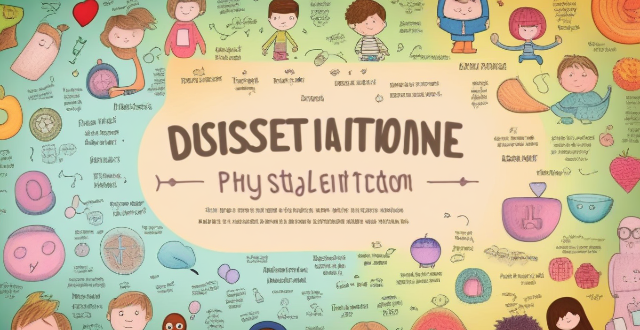
Is there a connection between physical fitness levels and academic performance in children ?
This text discusses the potential correlation between physical fitness levels and academic achievement in children, highlighting research findings that suggest a positive relationship. It outlines various mechanisms through which physical activity may improve cognitive functions and behavior, leading to better academic performance. The text also emphasizes the importance of incorporating physical education into school programs and encourages family and community involvement in promoting physical activities among children.

What is the relationship between physical literacy and child development ?
Physical literacy is crucial for child development, enhancing cognitive, social, emotional, and physical dimensions of learning. It improves memory, attention, problem-solving skills, communication, cooperation, empathy, self-esteem, resilience, muscle strength, cardiovascular health, and reduces the risk of chronic diseases. Incorporating regular physical activity into children's daily routines promotes their overall growth and well-being.

Is there a link between physical fitness and cognitive function ?
The text discusses the potential link between physical fitness and cognitive function, citing research that suggests a correlation. It defines physical fitness as the ability to perform aspects of sports or occupations, obtained through proper nutrition, exercise, and rest, and cognitive function as mental processes involving perceiving, remembering, reasoning, problem-solving, understanding, judging, and learning. The text mentions studies that suggest enhanced physical fitness can improve cognitive function in older people without known cognitive impairment and that physical fitness could be a better predictor of cognitive performance than physical activity. It also discusses potential mechanisms behind the relationship, including increased blood flow to the brain and the release of chemicals that promote cell growth, improvement, and survival. Finally, it notes the potential implications of this research for individual and societal health.

How does sports affect the physical development of adolescents ?
Sports during adolescence positively impact physical development by enhancing muscular strength, improving bone density, promoting coordination and balance, managing body composition, benefiting cardiovascular health, and fostering mental well-being. Additionally, they encourage active lifestyle habits and social interaction, setting a foundation for lifelong health and wellness.

How can I teach my child better concentration habits ?
Concentration is an essential skill for children to develop as it helps them focus on tasks, learn new things, and achieve their goals. Teaching your child better concentration habits can be challenging, but with patience and consistency, you can help them improve their ability to pay attention and stay focused. Here are some tips to teach your child better concentration habits: 1\. Set Clear Expectations: Establish clear expectations for your child's behavior and concentration levels. Make sure they understand what is expected of them and why it is important. 2\. Create a Distraction-Free Environment: Minimize distractions in your child's environment to help them concentrate better. Turn off the TV, put away toys or electronic devices, and ensure that there are no loud noises or interruptions during study or task time. 3\. Break Tasks into Smaller Chunks: Breaking down tasks into smaller, more manageable chunks can help your child stay focused and avoid feeling overwhelmed. 4\. Use Visual Cues: Visual cues such as checklists or charts can help your child stay organized and focused on their tasks. 5\. Encourage Short Breaks: Encourage your child to take short breaks between tasks to recharge their mental batteries. A five-minute break every hour or so can help them maintain focus and avoid burnout. 6\. Practice Mindfulness Techniques: Mindfulness techniques such as deep breathing exercises or meditation can help your child develop better concentration habits. 7\. Praise Effort and Progress: Praising your child's effort and progress can motivate them to continue working towards better concentration habits. Acknowledge their accomplishments and encourage them to keep pushing themselves to improve.

What is the relationship between physical activity, mental health, and peace ?
The text discusses the interconnected relationship between physical activity, mental health, and peace. Regular physical activity can reduce anxiety and depression, improve mood, and enhance cognitive function, which in turn fosters emotional stability, clear thinking, and empathy - qualities necessary for maintaining peace. Sports and group activities promote teamwork, respect for others, and community building, contributing to peaceful interactions. Therefore, understanding these connections can lead to conscious choices that improve individual lives and contribute to a more peaceful world.

Do Outlet Stores offer better discounts than regular stores ?
Outlet stores offer discounts on merchandise, but do they really offer better deals than regular stores? The answer depends on several factors, including the type of product being purchased and the specific outlet store being visited. However, in general, outlet stores tend to offer better discounts due to their business model of selling overstock, discontinued, or returned items. Shopping at outlet stores can have benefits such as discounted prices, a wide selection of products, and convenience. By understanding the factors that contribute to these discounts and shopping strategically, consumers can make informed decisions about where to purchase their desired products.
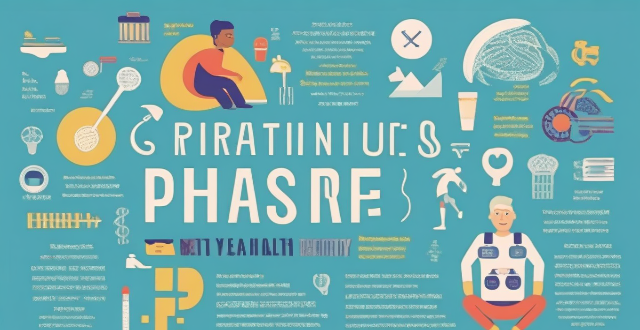
How does sports education contribute to physical fitness and overall health ?
This text discusses the importance of sports education in promoting physical fitness and overall health. It highlights various benefits such as improved cardiovascular health, muscular strength, weight management, mental well-being, social interaction, and injury prevention. The text emphasizes the role of sports education in fostering healthy lifestyle habits and reducing the risk of obesity-related health issues, heart diseases, and stroke. It also mentions the mental health benefits of engaging in sports activities, including reduced stress, anxiety, and depression. Finally, the text underscores the importance of sports education in developing teamwork skills, leadership qualities, and problem-solving abilities.

Can regular physical activity help in reducing stress and anxiety ?
Regular physical activity can help reduce stress and anxiety by promoting the release of endorphins, improving sleep quality, and boosting self-esteem. Aerobic exercises like running, swimming, or cycling are particularly effective because they increase heart rate and circulation, leading to improved oxygenation of the brain. Yoga and tai chi focus on breathing and relaxation techniques that can also help reduce stress and anxiety. The American Heart Association recommends at least 150 minutes of moderate-intensity aerobic exercise or 75 minutes of vigorous-intensity aerobic exercise per week for adults. Finding an exercise routine that works for you and that you enjoy is key to sticking with it over time.

Does the new iPhone model have a better camera than the previous model ?
The new iPhone model has a better camera than the previous model due to hardware improvements like a larger sensor, increased aperture, and improved optical image stabilization. Software enhancements such as Deep Fusion, enhanced Night mode, and improved Portrait mode also contribute to higher image quality. Sample photos show that the new model produces images with better detail, color accuracy, and dynamic range, especially in low-light situations. Upgrading to the latest iPhone model is recommended for those who prioritize having a high-quality camera on their smartphone.

Can dehydration really cause muscle cramps during physical activity ?
Dehydration can lead to muscle cramps during physical activity due to loss of essential electrolytes and reduced oxygen supply to muscles. Signs of dehydration include thirst, dark urine, fatigue, dizziness, dry mouth, headache, and constipation. To prevent dehydration and muscle cramps, stay hydrated, eat a balanced diet rich in electrolytes, stretch before and after exercise, gradually increase intensity, and rest when needed.

Can physical activity reduce the risk of heart disease ?
Regular physical activity can significantly reduce the risk of heart disease by improving blood circulation, strengthening heart muscles, and reducing major risk factors such as high blood pressure, high cholesterol, and diabetes. Recommended types of exercise include aerobic activities and strength training. Following guidelines from health organizations like the WHO can help maintain cardiovascular health.

Is there a connection between physical fitness and self-esteem ?
The article discusses the relationship between physical fitness and self-esteem, stating that engaging in regular exercise and maintaining a fit body can improve one's body image, confidence, mental health, and social interaction. In contrast, poor physical fitness can lower self-esteem by negatively impacting body image, confidence, stress levels, and leading to isolation. The author concludes that maintaining good physical fitness is essential for overall well-being and self-esteem.
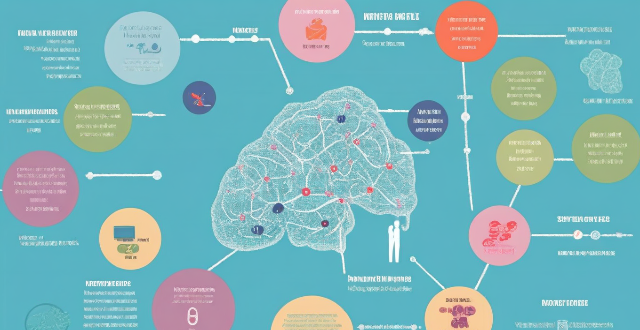
What are the benefits of physical activity on brain health ?
Physical activity has numerous benefits for brain health, includingPhysical activity has numerous benefits for brain health, including risk of dementia, including improved cognitive function, reduced risk of dementia, and increased overall brain volume. Regular exercise increases blood flow to the brain, delivering nutrients and oxygen to neurons, reducing inflammation and oxidative stress, and enhancing neural plasticity through increased levels of BDNF. Additionally, physical activity improves mood, reduces symptoms of depression and anxiety, and improves sleep quality. Incorporating regular exercise into your lifestyle can help maintain a healthy mind and body.

In what ways do physical activities promote mental health and deter video game dependency ?
This topic summary delves into the intricate relationship between physical activities, mental health, and video game dependency. It emphasizes the role of physical activities in promoting mental well-being by boosting mood, enhancing cognitive functions, and providing social interaction. Conversely, it highlights how these activities can deter video game dependency by offering alternative forms of entertainment, setting boundaries for gaming time, and fulfilling achievement needs. The text underscores the importance of maintaining a balance between digital leisure and physical activities for overall mental health and well-being.

How can sports and physical activities help prevent internet gaming addiction ?
Sports and physical activities can help prevent internet gaming addiction by offering alternative forms of entertainment, promoting mental and physical well-being, and fostering social connections. Strategies for incorporating sports include setting fitness goals, choosing enjoyable activities, and involving family or friends to make it a sustainable part of one's lifestyle.
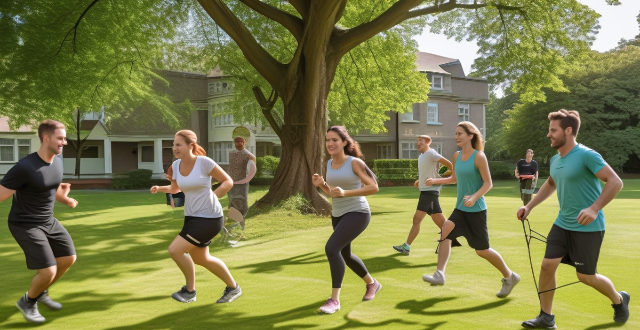
How can sports help improve the physical health of rural residents ?
Sports and physical activities can greatly improve the physical health of rural residents by enhancing fitness levels, managing weight, promoting mental well-being, encouraging social interactions, and preventing chronic diseases. It is crucial for local authorities and organizations to promote sports programs and provide accessible facilities to encourage more rural dwellers to engage in physical activities regularly.

How often should professionals take breaks for physical activity throughout the workday ?
Taking breaks throughout the workday is crucial for maintaining physical and mental well-being. Experts recommend taking short breaks every hour or two, which can include standing up, stretching, or going for a quick walk. Benefits of frequent breaks include reduced stress levels, improved focus, better posture, and increased energy levels. To incorporate breaks into your workday, set reminders, stand up and stretch, take a walk, do light exercises, and practice mindfulness techniques like deep breathing or meditation.